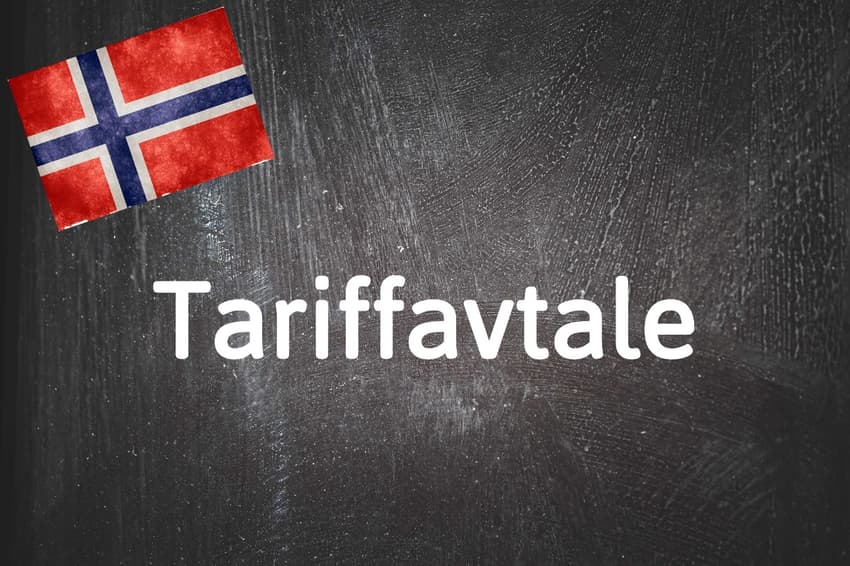Norwegian word of the day: Tariffavtale

The majority of Norway's workforce is unionised, meaning you will more than likely need to become familiar with the details of today's word.
What does it mean?
Tariffavtale is a relatively simple word to decipher. Tariff is similar to the English equivalent meaning a list of prices, custom rates, wages or something similar and avtale means agreement.
Together the literal translation is tariff agreement. However, the more fitting translation may be collective agreement or collective bargaining agreement. The word refers to the wage rates and working conditions that apply to unionised workers and are agreed upon by Norwegian unions and employer groups.
These talks take place every year; each year will signify a different type of agreement. These alternate between an interim settlement (mellomoppgjør) and a full settlement (hovedoppgjøret).
An interim settlement is solely focused on wages. Meanwhile, full settlements will cover overtime, holiday and other details relating to work benefits and conditions.
Why do I need to know this?
Norway doesn't have a set national minimum wage, which makes these agreements especially important.
Instead, several industries which the Norwegian Labour Inspectorate believes are vulnerable to exploitation have a minimum salary in place.
Therefore most workers in Norway unionise in order to benefit from the collective bargaining agreements.
One argument against collective bargaining agreements is that they limit the ability of individual employees to negotiate. For example, if you've had a particularly successful year at work, you might go into your annual review hoping to argue the case for a significant pay rise, but if a tariff agreement governs your workplace, this might not be possible.
On the other hand, they often offer employees more favourable conditions than workplaces without these agreements.
If an agreement isn't reached between employers and unions, then strikes can break out.
Comments
See Also
What does it mean?
Tariffavtale is a relatively simple word to decipher. Tariff is similar to the English equivalent meaning a list of prices, custom rates, wages or something similar and avtale means agreement.
Together the literal translation is tariff agreement. However, the more fitting translation may be collective agreement or collective bargaining agreement. The word refers to the wage rates and working conditions that apply to unionised workers and are agreed upon by Norwegian unions and employer groups.
These talks take place every year; each year will signify a different type of agreement. These alternate between an interim settlement (mellomoppgjør) and a full settlement (hovedoppgjøret).
An interim settlement is solely focused on wages. Meanwhile, full settlements will cover overtime, holiday and other details relating to work benefits and conditions.
Why do I need to know this?
Norway doesn't have a set national minimum wage, which makes these agreements especially important.
Instead, several industries which the Norwegian Labour Inspectorate believes are vulnerable to exploitation have a minimum salary in place.
Therefore most workers in Norway unionise in order to benefit from the collective bargaining agreements.
One argument against collective bargaining agreements is that they limit the ability of individual employees to negotiate. For example, if you've had a particularly successful year at work, you might go into your annual review hoping to argue the case for a significant pay rise, but if a tariff agreement governs your workplace, this might not be possible.
On the other hand, they often offer employees more favourable conditions than workplaces without these agreements.
If an agreement isn't reached between employers and unions, then strikes can break out.
Join the conversation in our comments section below. Share your own views and experience and if you have a question or suggestion for our journalists then email us at [email protected].
Please keep comments civil, constructive and on topic – and make sure to read our terms of use before getting involved.
Please log in here to leave a comment.